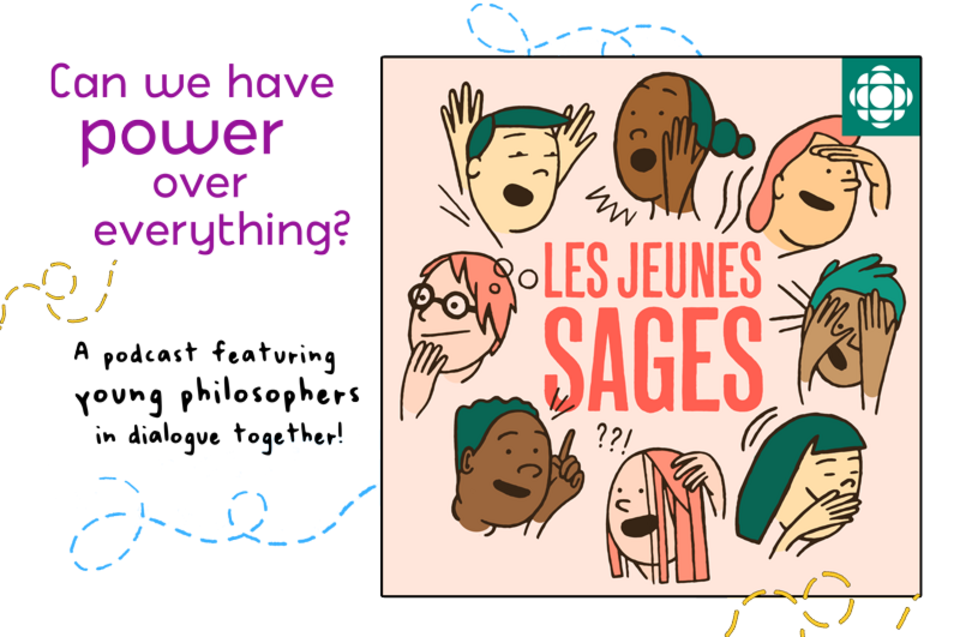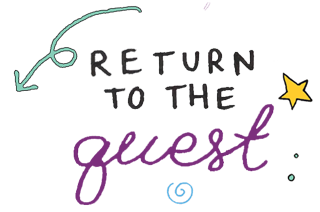
Boredom: problematic or promising?
| Objective: To feed your philosophical reflections on boredom with your family's help during lunch! |
Duration : 30 to 75 minutes
Material :
-
Sheets of paper and pen
-
Coloured pencils and markers
-
Your family
Instructions :
It's time to eat! Gather your family around the table for a decadent dialogue about boredom. Explore the following questions, finding inspiration in the thinking prompts as necessary. Together, think of reasons to explain your positions and try to build an answer by combining your ideas! But don't worry if the urge to keep talking doesn't subside... philosophical picnics are an insatiable quest!
...
- Question 1: Can anyone get bored?
- Thinking prompts : Do you think boredom is an emotion that everyone has the capacity to experience? What about babies, animals… or really intelligent robots? Can they be bored too? If so, is their boredom different than yours? Think back to your first Idea Stretching mission with the curious alien. Imagine they ask your whole family to take turns describing what boredom feels like—do you think you will all give the same explanations? If not, does that mean you might all get bored… but differently? Hmm... maybe it all depends on what you mean by boredom! Go back and read your original definition and compare it to your family’s descriptions. Do you have some new criteria to add?
-
Question 2: Can boredom lead to good?
- Thinking prompts: We humans have some pretty exaggerated ways to talk about boredom—from being bored silly to being bored to tears… and even being bored to death! But what really are the consequences of boredom? With your family, try to think of the most boring thing you have ever done. Why was it so boring? And how did it affect you? Were the effects only negative… or did some positive things happen too? Now, push your thinking even further by thinking together of at least five scenarios in which boredom could lead to good! How might that happen? Could there be different types of boredom—some bad, others good? If so, what strategies could you come up with for telling them apart? Hmm... maybe we’ve never even considered having that power over our boredom…
- Question 3: Are we responsible for our own boredom?
- Thinking prompts: Have you ever whined to someone by wailing, “I’m boooored!” followed by a long, exasperated humph? Think back to that time and ask yourself: were you expecting the other person to just sympathize with you… or do something about your boredom? Now imagine they reacted by saying: “Your boredom is not my problem!” What could that mean? That they aren’t to blame for causing it… or that they aren’t in charge of removing it? As a family, think of the ways you might sometimes be bringing about your own boredom. For example, maybe you replay your favourite game or movie or song so many times that you get sick of it! Then again, are there some moments when your boredom truly has nothing to do with you? If so, what’s the best way to stop being bored and why? Hmm… maybe we have more control over our boredom than we think! Yet should we help someone who says they’re bored? Try to finish the sentence: If boredom didn't exist, then _________.
...
Bonus : Many experts, from artists to psychologists, have argued that boredom is the gateway to brilliance! Far from seeing it as a source of irritability and dissatisfaction, they claim we should try to cultivate boredom to see what wonders can spring from it—like a cool new idea, a feeling of self-control… or even a deep insight into your soul! So let’s test out whether dead time can be brought to life! Divvy up these “boring bursts” among your family members, ensuring you have enough privacy to do them without bothering each other. Then, for seven minutes straight (use a timer!), completely commit yourself to your burst to get as bored as humanly possible!
Following this experience of carefully provoked boredom, share your responses to the following questions: Did you succeed in getting bored? What did your boredom feel like? What were some of the thoughts, sensations, feelings and motivations that your boredom brought to life? Did you manage to make boredom… interesting? |

| Tricks for tots : Sometimes we get bored because we feel like there is nothing to do. But is it possible to actually do nothing? How about you give it a try? For a few minutes and totally on purpose, try to do absolutely nothing. Do you have to concentrate hard? Is your mind wandering? What is your body up to? Now think about the process: What does it take to do nothing at all? Once you’ve figured it out, think of a little instruction list you could give to the curious alien to help with their first experience of total nothingness! |
| Tips for teens : Parlez-vous français ? As you prepare your meal or digest your feast of delicacies and tasty ideas, listen to the Les jeunes sages podcast on power. Drawing inspiration from the reflections of the young philosophers, try to answer the question: Is it possible to have power without abusing it? Do you agree or disagree with the answers given by the participants? Try to think of lines of thinking that have not been addressed. What other angles of the concept of power deserve to be explored? Perhaps wonder about the link between boredom and power... Can power be boring ? Can boredom be a power? Do we have power over everything... even boredom ? You may also wonder: Is it possible to abuse of boredom? If you can't understand French, don't worry! You can still wonder about these questions! You can even imagine that you are recording a podcast with your family... Family Wisdom! |
Share your creative reflections by sending them via email.
Include photos of your projects and notes of your thoughts, as well as your first name and your age!


